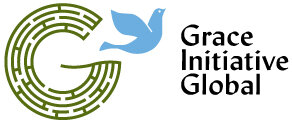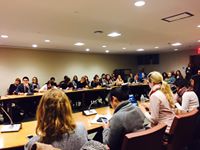– Invitation –
A Discussion with a Delegation of Women Ambassadors from the United Nations: In Honor of the United Nations Commission on Status of Women
Friday: 31 March, 2017 Northshire Bookstore
6:00 PM - 7:30 PM
Saturday: 1 April 2017, Bennington College, CAPA
11:00 AM – 12:00 PM
Vermont Farmers Food Center
1:00PM - 2:00 PM
The Theme of the Discussion is on Women's Economic Empowerment
in Peaceful and Inclusive Societies
In celebration of International Women’s Day and the UN Commission on Status of Women (UN CSW), the Grace Initiative—with the Center for the Advancement Public Action at Bennington College, Northshire Bookstore, and Vermont Farmers Food Center—is organizing a discussion on the theme of Women’s Economic Empowerment and Peaceful and Inclusive Societies. This event follows the successful G77 retreat in Vermont in September 2016 on Sufficiency Economy Philosophy and Sustainable and Resilient communities, under the chairmanship of Thailand. To this end, a small delegation of Women Ambassadors from the United Nations will participate in interactive discussions in Manchester, Bennington, and Rutland focused on the recent UN CSW.
They will connect its theme of Women’s Empowerment to the 2030 Agenda for Development goal for peaceful and inclusive societies.
Friday, March 31 // Northshire Bookstore, Manchester // 6:00 pm
Saturday, April 1 // CAPA Symposium, Bennington College // 11:00 am
Saturday, April 1 // Vermont Farmers Food Center, Rutland // 1:00 pm
For further information, please email: contact@grace-initiative.org
Background:
The Vermont event takes place on the heels of the recently concluded two-week UN Commission on Status of Women (CSW). The first meeting of the CSW took place at Lake Success, New York, in February 1947 and it has been held every year since then. For the first CSW, all 15 government representatives were women. The CSW forged a close relationship with non-governmental organizations (NGOs) in consultative status with the UN Economic and Social Council (ECOSOC). One of the first goals of the CSW was to contribute to the drafting of the Universal Declaration of Human Rights. The CSW successfully argued against references to “men” as a synonym for humanity, and succeeded in introducing new, more inclusive language.
The Commission drafted the early international conventions on women’s rights, such as the 1953 Convention on the Political Rights of Women, which was the first international law instrument to recognize and protect the political rights of women, and the first international agreements on women’s rights in marriage, namely the 1957 Convention on the Nationality of Married Women, and the 1962 Convention on Consent to Marriage, Minimum Age for Marriage and Registration of Marriages.
In 1963, the UN General Assembly requested the Commission to draft a Declaration on the Elimination of Discrimination against Women, which the Assembly adopted in 1967. This declaration became the legally binding Convention on the Elimination of All Forms of Discrimination against Women (CEDAW). In 1999, the Optional Protocol to the Convention introduced the right of petition for women victims of discrimination.
Every year, women and men from ministries of foreign affairs, government positions, and civil society from around the world convene at the UN to discuss, deliberate, and develop positions on CSW thematic issues. This year, the theme focused on the Empowerment of Women, and the changing role of women in the workplace. Further, it took into consideration the Millennium Development Goals for Women and Girls.




